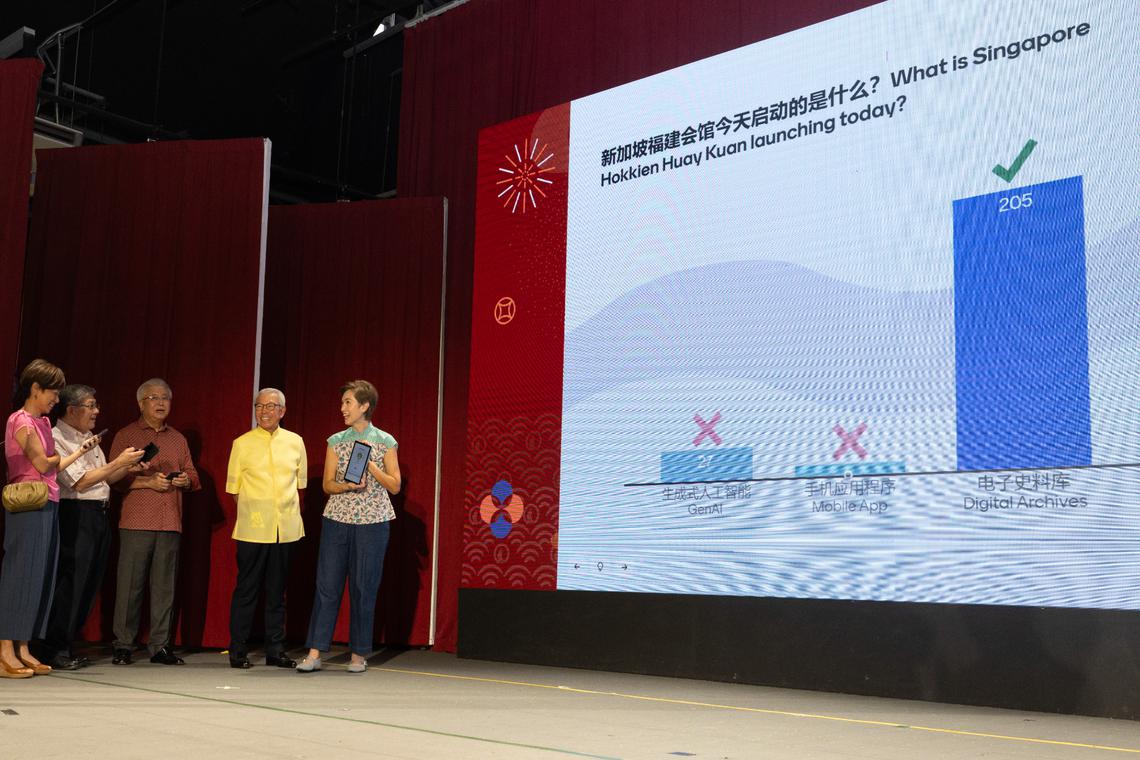SINGAPORE – Documents detailing the construction of temples and deity processions held by Hokkien communities in 19th century Singapore are gradually being digitised in a new database.
With records dating as far back as 1827, the Singapore Hokkien Huay Kuan (SHHK) is digitising more than 5,000 news articles, literature works and records about the association, as well as stories on the Hokkien community as part of its efforts to adopt digital technology.
SHHK said the digital database is the first of its kind among local Chinese clan associations.
As of Feb 15, about 800 records have been uploaded to the database on the association’s website. SHHK hopes to complete the digitisation process within two years.
Launched on Feb 15 to mark the 185th anniversary of SHHK, the database is free for public access.
“It is important that we have this depository of things that happened before, things that Hokkiens have been through or contributed to the local community,” said SHHK president Thomas Chua.
Noting that the digital records will be particularly useful to academics, Mr Chua said: “Members of the public and academics around the world, no matter where they are, can find information related to the SHHK anytime, anywhere.”
The younger and future generations can also learn about the contributions by their forefathers and continue to help contribute to developing the community and the country, he added.
The launch, held at the Singapore Hokkien Huay Kuan Cultural Academy, was attended by more than 400 guests.
Digital Development and Information Minister Josephine Teo, who was the guest of honour, said the digital archives are a testament to SHHK’s willingness to update its offerings to be relevant to young generations.
“We believe that technology can be a force for good to optimise the opportunities for our people and businesses…it can also help bring our communities together, including the (Chinese communities),” she said.
The project will create more opportunities for the Hokkien community to engage with their cultural legacy, she added.
“This will bridge generations of Singaporeans in the process and ensure that our unique local culture continues to stand the test of time with the help of technology,” she said.
The uploading of the records is done by staff members, who have to manually parse through articles and records before reproducing them online.
Most of the articles are taken from Chinese papers, with some written in traditional Chinese, which has to be retyped into simplified Chinese. Some of the old newspapers are also illegible due to ink smudges and fading, posing challenges to the digitising efforts.
The association hopes to launch a children’s picture book and a young adult graphic novel in both English and Chinese by the end of 2025 to promote the Hokkien culture to young Singaporeans.
Other clan associations have also used technology to help make local heritage and information more accessible.
For example, Chin Kang Huay Kuan developed a mobile app that enables users to watch videos in the Hokkien dialect, access an audio Hokkien dictionary and challenge themselves to a game of Hokkien idioms.
Join ST’s WhatsApp Channel and get the latest news and must-reads.

